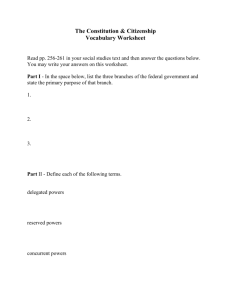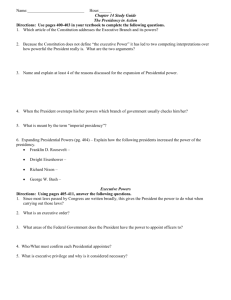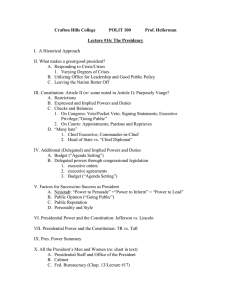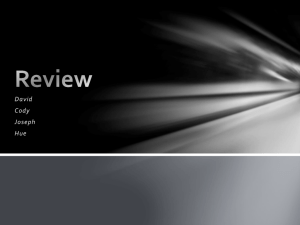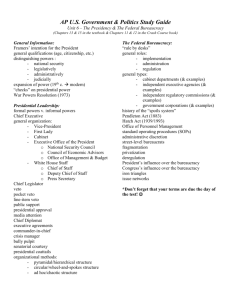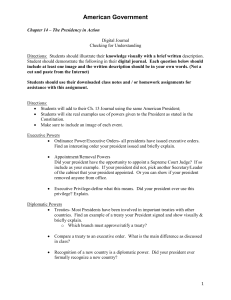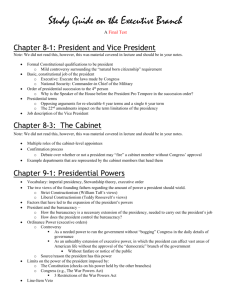AP US Government and Politics Ch. 13- The Presidency
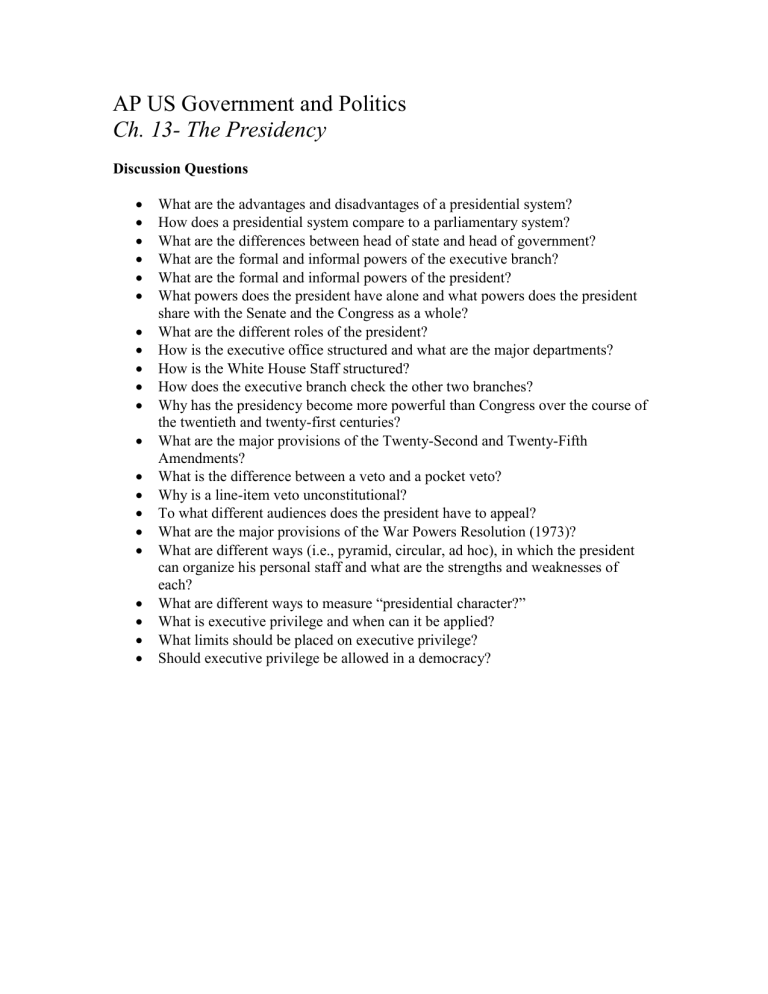
AP US Government and Politics
Ch. 13- The Presidency
Discussion Questions
What are the advantages and disadvantages of a presidential system?
How does a presidential system compare to a parliamentary system?
What are the differences between head of state and head of government?
What are the formal and informal powers of the executive branch?
What are the formal and informal powers of the president?
What powers does the president have alone and what powers does the president share with the Senate and the Congress as a whole?
What are the different roles of the president?
How is the executive office structured and what are the major departments?
How is the White House Staff structured?
How does the executive branch check the other two branches?
Why has the presidency become more powerful than Congress over the course of the twentieth and twenty-first centuries?
What are the major provisions of the Twenty-Second and Twenty-Fifth
Amendments?
What is the difference between a veto and a pocket veto?
Why is a line-item veto unconstitutional?
To what different audiences does the president have to appeal?
What are the major provisions of the War Powers Resolution (1973)?
What are different ways (i.e., pyramid, circular, ad hoc), in which the president can organize his personal staff and what are the strengths and weaknesses of each?
What are different ways to measure “presidential character?”
What is executive privilege and when can it be applied?
What limits should be placed on executive privilege?
Should executive privilege be allowed in a democracy?
Key Terms
Caucus (political)
Expressed powers
Delegated powers
Inherent powers
Commander in chief
War Powers Resolution
Executive agreement
Cabinet
National Security Council (NSC)
White House staff
Kitchen Cabinet
Executive Office of the President (EOP)
Signing statements
Executive Privilege
Veto
Pocket Veto
Legislative Initiative
Executive Order

